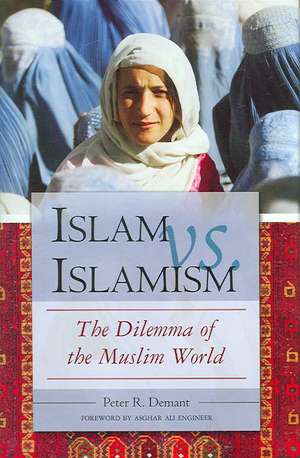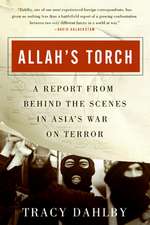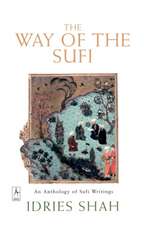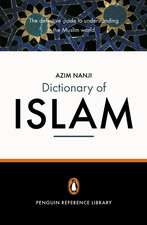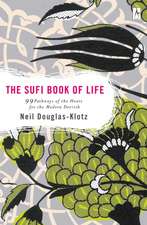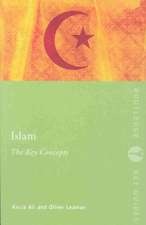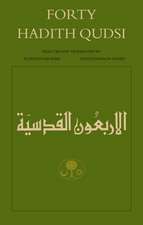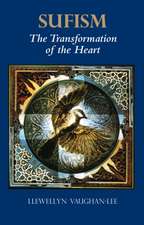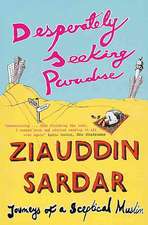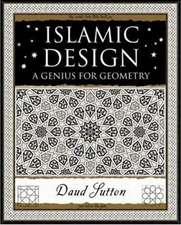Islam vs. Islamism: The Dilemma of the Muslim World
Autor Peter R. Demanten Limba Engleză Hardback – 29 sep 2006 – vârsta până la 17 ani
Preț: 358.00 lei
Preț vechi: 416.41 lei
-14% Nou
Puncte Express: 537
Preț estimativ în valută:
68.56€ • 70.64$ • 57.44£
68.56€ • 70.64$ • 57.44£
Carte tipărită la comandă
Livrare economică 24 februarie-10 martie
Preluare comenzi: 021 569.72.76
Specificații
ISBN-13: 9780275990787
ISBN-10: 0275990788
Pagini: 312
Dimensiuni: 156 x 235 x 28 mm
Greutate: 0.62 kg
Editura: Bloomsbury Publishing
Colecția Praeger
Locul publicării:New York, United States
ISBN-10: 0275990788
Pagini: 312
Dimensiuni: 156 x 235 x 28 mm
Greutate: 0.62 kg
Editura: Bloomsbury Publishing
Colecția Praeger
Locul publicării:New York, United States
Notă biografică
Peter R. Demant is Professor of History at Universidade de Sáo Paulo, Brazil, where he lectures in international relations and contemporary Asian history. From 1991 to 1999 he lived in Jerusalem, where he was senior research associate at the Harry S Truman Research Institute for the Advancement of Peace at Hebrew University of Jerusalem. He is a specialist in Middle Eastern and Islamic affairs.
Recenzii
Demant's book is both a survey of Islam's history and status worldwide and an analysis of Islamism and its position within the Muslim world. Demant argues that Islamism is Islam's greatest dilemma today, and that the outcome will determine Islam's future. He sees Islamism, especially its violent, anti-modern version, as itself a modern movement, born of and yet at war with modernity. While Islamists use modern weapons and information technology and seek to impose a modern-type universal and culture-free vision, they deny the bases of modernity--human reason and human sovereignty--and claim to be bulwarking the ummah against its perils. Demant argues convincingly that the real clash of civilizations is not the Judeo-Christian West against Islam, but a universalized modernity that could make room for a reformed and tolerant version of Islam against a radically anti-modern strain of political Islam that turns the tools and weapons of modernity against itself..[t]he analytical sections are relevant, innovative, and convincing, making the book a valuable resource. Recommended. Graduate students and professionals.
[D]emant has contributed another book to the growing library of information on Islam. Divided into three sections-Yesterday, Today, and Tomorrow-his text covers the history, current events, and future of Islam. Well researched and full of historical background and insight, it is definitely not meant for the casual reader. Instead, it provides a fascinating explanation for anyone truly interested in the historical reasons for the current conflict in the Middle East and in how these reasons influenced the development of radical Islam (Islamism). With a foreword by Ashgar Ali Engineer (director, Inst. for Islamic Studies, India) and extensive notes; suitable for academic settings.
Demant, a specialist in Middle Eastern and Islamic affairs, carefully distinguishes between the religion of Islam and the political ideology of Islamism, placing each within its own context. He describes the origins and historical trajectory of Islam from the classical to the era of western influence, and then examines how Islam's expansion relates to issues of diaspora. He relates the past to the three waves of Islamism from the Sunni jihad of the late 1960s to the early 1980s, the Shiite interlude of the 1980s, and the later Seven Marks, analyzes Islamism as an ideology, a movement, and an element of tribalism, and evaluates the tangled relationship of Islam and the west that will define coming years. He closes with observations about homogeneity, modernity, democracy, the challenge from western Islam and the possibility of an Islamist superpower or an Islamist revolution in a western state.
[D]emant has contributed another book to the growing library of information on Islam. Divided into three sections-Yesterday, Today, and Tomorrow-his text covers the history, current events, and future of Islam. Well researched and full of historical background and insight, it is definitely not meant for the casual reader. Instead, it provides a fascinating explanation for anyone truly interested in the historical reasons for the current conflict in the Middle East and in how these reasons influenced the development of radical Islam (Islamism). With a foreword by Ashgar Ali Engineer (director, Inst. for Islamic Studies, India) and extensive notes; suitable for academic settings.
Demant, a specialist in Middle Eastern and Islamic affairs, carefully distinguishes between the religion of Islam and the political ideology of Islamism, placing each within its own context. He describes the origins and historical trajectory of Islam from the classical to the era of western influence, and then examines how Islam's expansion relates to issues of diaspora. He relates the past to the three waves of Islamism from the Sunni jihad of the late 1960s to the early 1980s, the Shiite interlude of the 1980s, and the later Seven Marks, analyzes Islamism as an ideology, a movement, and an element of tribalism, and evaluates the tangled relationship of Islam and the west that will define coming years. He closes with observations about homogeneity, modernity, democracy, the challenge from western Islam and the possibility of an Islamist superpower or an Islamist revolution in a western state.
